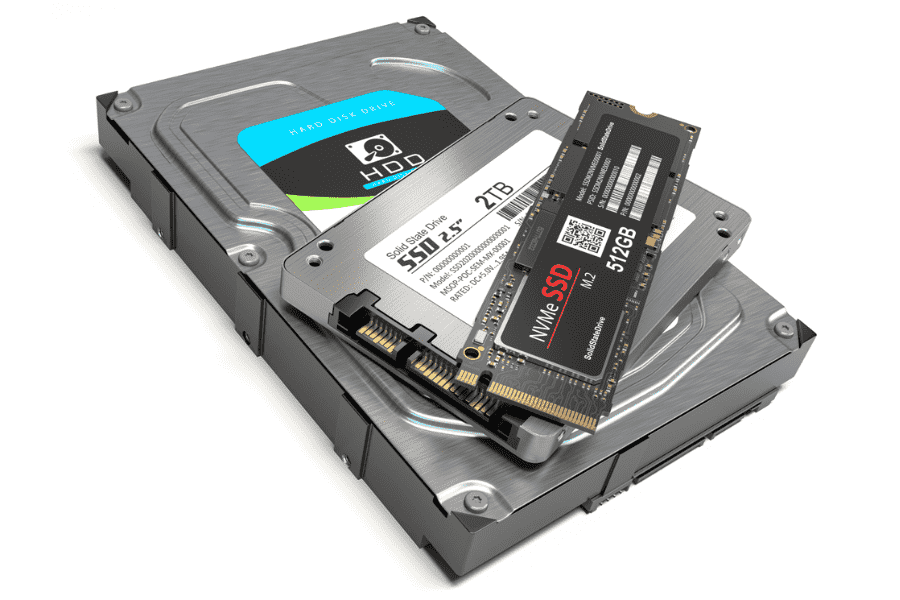SSD (Solid State Drive)
Solid State Drives (SSDs) offer numerous advantages over traditional Hard Disk Drives (HDDs), making them a popular choice for storage solutions:
- Speed: SSDs use flash memory to store data, which allows for significantly faster read and write speeds compared to HDDs. This results in quicker boot times, faster application launches, and overall snappier system performance.
- Reliability: SSDs have no moving parts, unlike HDDs which rely on spinning disks and mechanical components. This makes SSDs more resistant to physical shock, vibration, and wear and tear, leading to improved reliability and longevity.
- Energy Efficiency: SSDs consume less power than HDDs since they don't require motors to spin disks. This translates to lower energy consumption, longer battery life for laptops and mobile devices, and reduced cooling requirements for desktop systems.
- Quiet Operation: Without any moving parts, SSDs operate silently, unlike HDDs which can produce noise from spinning disks and mechanical components. This makes SSDs ideal for environments where noise reduction is important, such as home offices or recording studios.
- Compact Form Factor: SSDs are typically smaller and lighter than HDDs, making them well-suited for compact devices such as laptops, ultrabooks, and tablets. Their compact form factor also allows for more flexible installation options in desktop systems.
- Improved Performance Over Time: Unlike HDDs, which can experience performance degradation as they age and become fragmented, SSDs maintain consistent performance over time. This ensures that systems remain responsive and efficient even with prolonged use.
Overall, the advantages of SSDs, including speed, reliability, energy efficiency, quiet operation, compact form factor, and consistent performance, make them an excellent choice for storage solutions in a wide range of computing environments.
WhatsApp Now Contact Now
